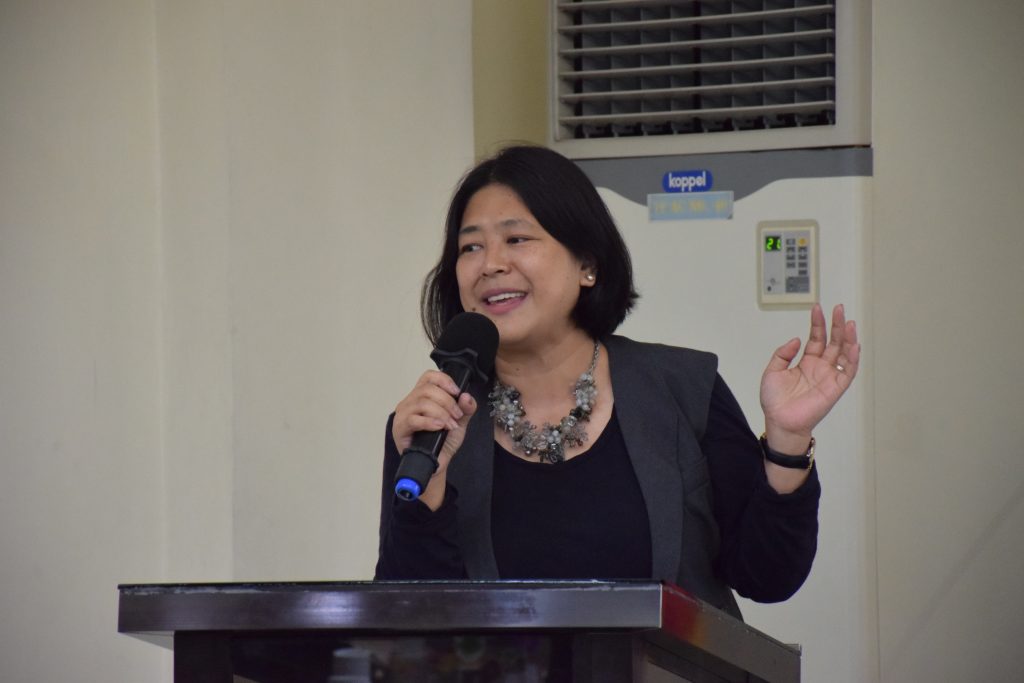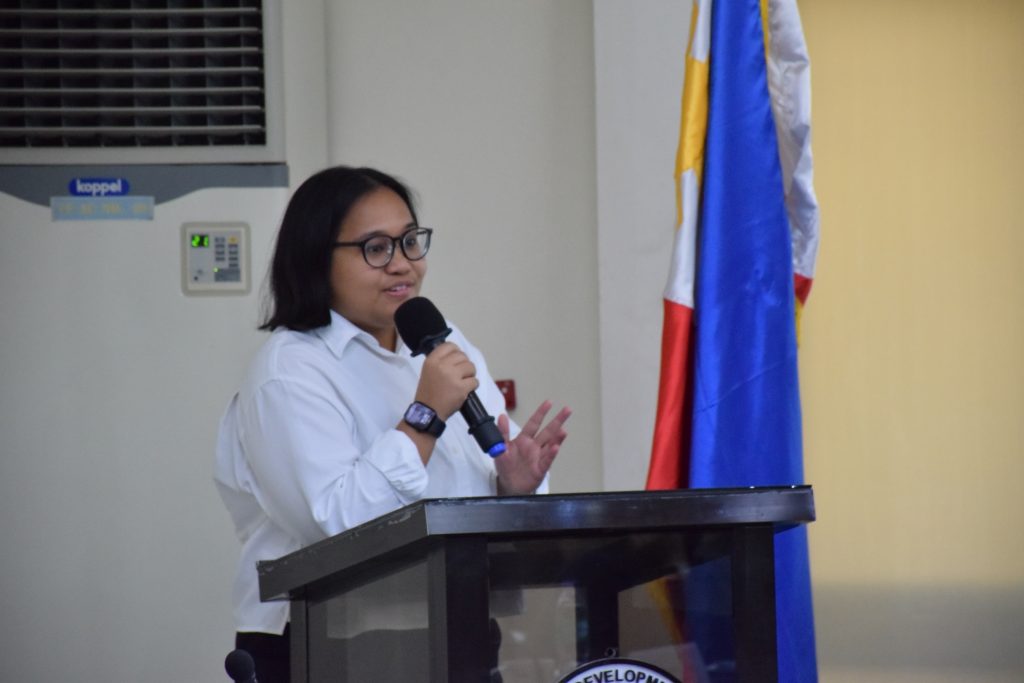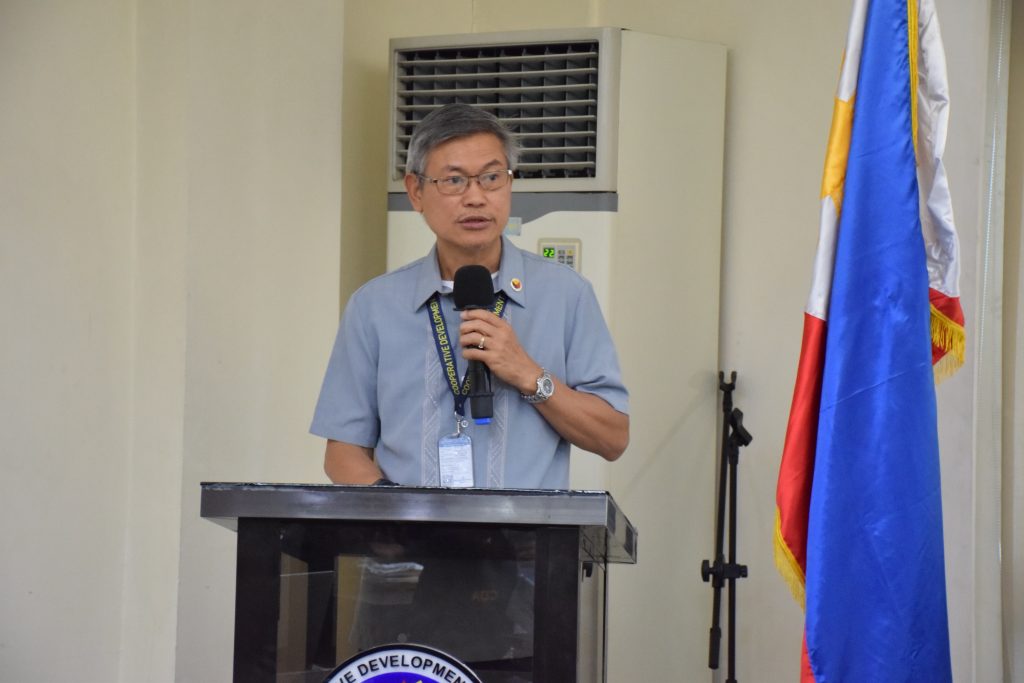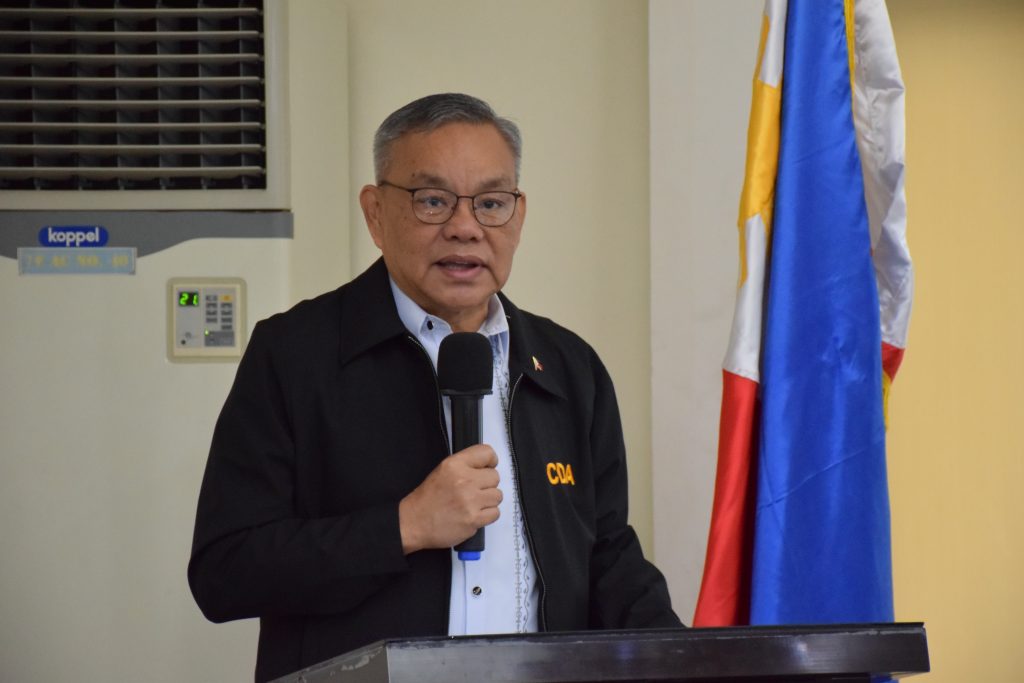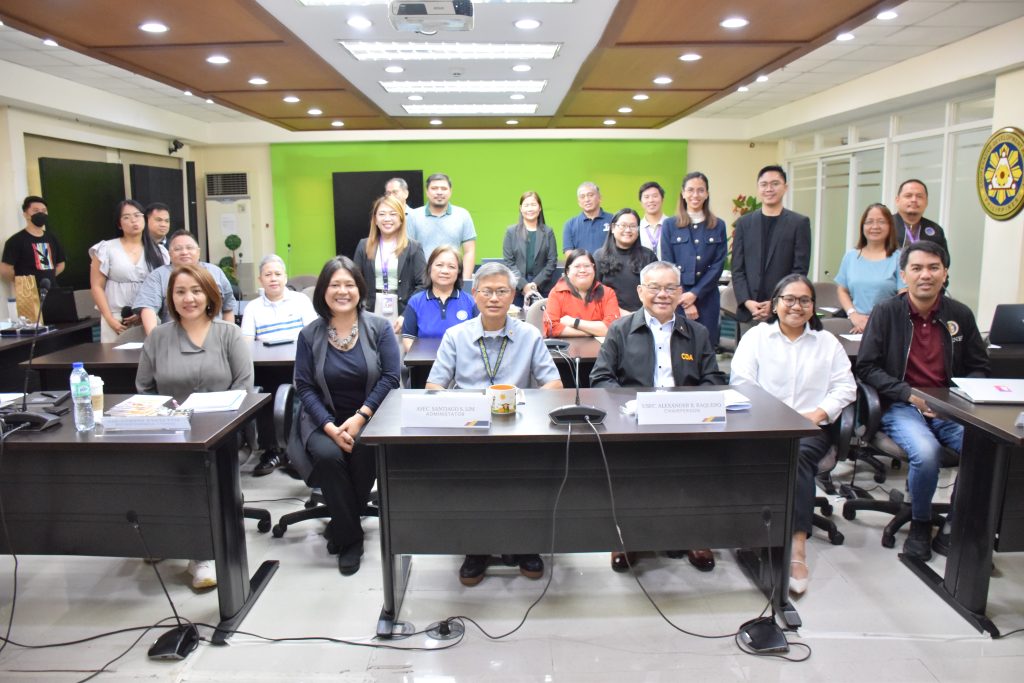
The Cooperative Development Authority (CDA), through the Legal Affairs Service, conducted the Arbitration Training for CDA-Accredited/Trained Arbitrators and CDA Personnel on 16 May 2025, held in the CDA Head Office, Quezon City, and online via Zoom for the virtual participants from Regional Extension Offices.
The Arbitration Training is in line with the CDA’s commitment to strengthening dispute resolution mechanisms within the cooperative sector. This training program aims to enhance the expertise of CDA-accredited and prospective arbitrators by providing a comprehensive review of arbitration principles, equipping candidates for accreditation, and empowering arbitrators to effectively fulfill their roles. Through these efforts, the Authority seeks to uphold efficient, fair, and timely resolution of cooperative disputes, thereby advancing its mandate to promote the growth and stability of cooperatives.
To share the Rationale, Deputy Administrator for Legal Affairs Service, Atty. Leah B. Banagui-Han provided the context and objectives of the Arbitration Training. In explaining the training’s theme, “Arbitration Works,” she drew on her experience and confirmed that arbitration truly works. To illustrate, she shared with the audience a long-standing dispute concerning transport cooperatives, which was finally put to an end through arbitration. She further stressed that these success stories should not remain isolated to specific regions but be replicated nationwide.
However, she also noted a concern: the arbitration cases among cooperatives have presented a growing demand that may, over time, test the current capacity of CDA-accredited voluntary arbitrators. This situation is partly due to fewer new applicants, including a more careful consideration by current arbitrators in taking on additional assignments.
Recognizing such a challenge, she emphasized the urgent need to expand the CDA’s pool of arbitrators. To address this, the Legal Division has actively explored ways to make arbitration more accessible and manageable, particularly through capacity-building initiatives such as this training. To help alleviate hesitations and guide arbitrators more effectively, an Arbitrator’s Kit, a to-go Pocket Guide, will be developed for arbitrators, which shall contain instructions, arbitration rules, procedural orders, and a checklist, including a script to guide the Arbitrators. The kit will help arbitrators prepare and organize, especially when conducting hearings or meetings in various locations.
Moreover, she emphasized that the primary goal of this training is not only to enhance knowledge but also to encourage retention among current arbitrators and increase participation among CDA personnel. Given the heavy workload in the Legal Division, she also urged legal officers to consider taking on the role of arbitrators. She reiterated that arbitrators need not be limited to lawyers alone; many individuals, with the right training and commitment, can serve effectively.
She concluded on an inspiring note, stating that there is hope and opportunity in arbitration, even beyond the CDA. Those who embrace this role may open themselves up to enriching experiences, including potential engagement in international arbitration platforms.
In his speech, Asec. Santiago S. Lim highlighted the need for a stronger, more agile, and highly capable pool of voluntary arbitrators within the CDA. He emphasized that dispute resolution is not merely a legal function but a vital service that directly supports the cooperative sector. As the lead agency mandated to ensure the sound operation and viability of cooperatives, CDA must ensure that its frontliners in dispute resolution are well-informed, well-equipped, and well-prepared. He highlighted the importance of institutionalizing mechanisms that foster peace, trust, and accountability across all levels of the cooperative movement.
Asec. Lim also noted that the training aligns with the CDA Chairman’s vision to strengthen the agency’s service delivery to cooperatives nationwide. Further, he emphasized that arbitration is not solely a legal remedy but also a tool for preserving relationships, rebuilding trust, and enabling cooperatives to thrive even in times of conflict. Echoing the Chairperson’s vision of maintaining a friendly and supportive relationship with cooperatives, he encouraged cooperative members to likewise foster harmony among themselves. He reiterated that the CDA is not just a regulator, but also a fair and compassionate partner to the cooperative sector.
He concluded by stressing the importance of continuous learning and the need to avoid division within the organization and the sector. He closed his message with a quote from negotiation and conflict resolution expert William Ury, “The greatest victory is not in winning a war, but in preventing one.”
As a prelude to the training, Usec. Alexander B. Raquepo expressed his firm belief in the importance of continuous learning regardless of age, race, belief, or career. He described continuous education as the antidote to obsolescence, emphasizing the need to move beyond a “Jurassic mind.” He remarked that this training serves as a step toward delivering more responsive and effective services to the cooperative sector.
He mentioned that, although he is a Mediator, this was his first experience with Arbitration Training. Based on his insights, he clarified the essential difference between the two: “In mediation, you do not decide. In arbitration, you are the one who decides.” With that authority, he acknowledged, comes the challenge of being at the center of contentious issues and potential controversies, an inherent part of the arbitrator’s role.
He emphasized that this training is more than just a learning session; it is a call to action to become catalysts of justice within the cooperative sector, where trust and harmony are indispensable. He noted that arbitration does not merely address legal questions, but also profoundly personal and impactful challenges. Citing a definition he encountered, he described arbitration as “a private dispute resolution method wherein the arbitrator renders the decision,” highlighting the unique aspect that the decision rendered is referred to as an “award,” a term that reflects the value and gravity of the arbitrator’s role.
He further stressed that arbitration is not just a skill but a responsibility, one that demands integrity, patience, empathy, and an unwavering commitment to impartiality. Addressing CDA-accredited and trained arbitrators, he reminded them of the unique mission they carry: to help build stronger, more sustainable cooperatives through fair, timely, and principled resolution of disputes. “You become the bridge when dialogue breaks down, and the compass when confusion clouds the way forward,” he stated.
In reflecting on the Filipino experience, he observed that our people are often unsatisfied with decisions, frequently pursuing appeals. Yet, he noted, this is part and parcel of democracy—something to be acknowledged and embraced.
In closing, he shared a mnemonic, A.R.B.I.T., as a guide for effective and principled arbitration:
A – stands for Amiable: projecting friendliness through our demeanor and facial expressions.
R – is for Respectful: acknowledging that while both parties may be assertive, mutual respect is essential, echoing the saying “respect begets respect.”
B – represents Balanced and Fair: encouraging arbitrators to align personal values with the ethical standards of the role.
I – stand for Independent: reinforcing that impartiality earns greater respect and trust.
T – is for Time-conscious: recognizing that swift, timely decisions are highly valued in arbitration.
He closed his message by encouraging the participants to carry these values forward in their roles, upholding the integrity of the arbitration process and the mission of the CDA.
Atty. Zenith J. Europa from the Department of Justice’s Office for Alternative Dispute Resolution was the esteemed resource person during the Arbitration Training. Renowned for her deep expertise in arbitration and alternative dispute resolution (ADR), Atty. Europa contributed a vast amount of knowledge and valuable experiences that greatly enhanced the training sessions.
Her background combines a deep understanding of legal theory with a practitioner’s insight into the complexities of dispute resolution. Her session during the training focused on best practices in arbitration, including the proper drafting of arbitration clauses, ensuring arbitrator impartiality, managing procedural efficiency, and navigating the enforcement of arbitral awards in both domestic and international settings.
Beyond her technical expertise, Atty. Europa’s presentation was highly engaging and thought-provoking. She contextualized her discussion through landmark jurisprudence, offering the participants a clear understanding of how arbitration principles are applied in practice and upheld by Philippine courts. Her lecture emphasized the importance of maintaining the integrity of the arbitration process and underscored arbitration not just as a legal mechanism but as a means to preserve relationships, promote fairness, and uphold justice.
The Arbitration Training distinguished itself through its focus on practical application, offering not only the substantive and technical foundations of ADR but also highlighting the realities of stepping into the role of an arbitrator. This approach empowers participants to confidently navigate the challenges and ultimately become effective arbitrators.
Photos:
